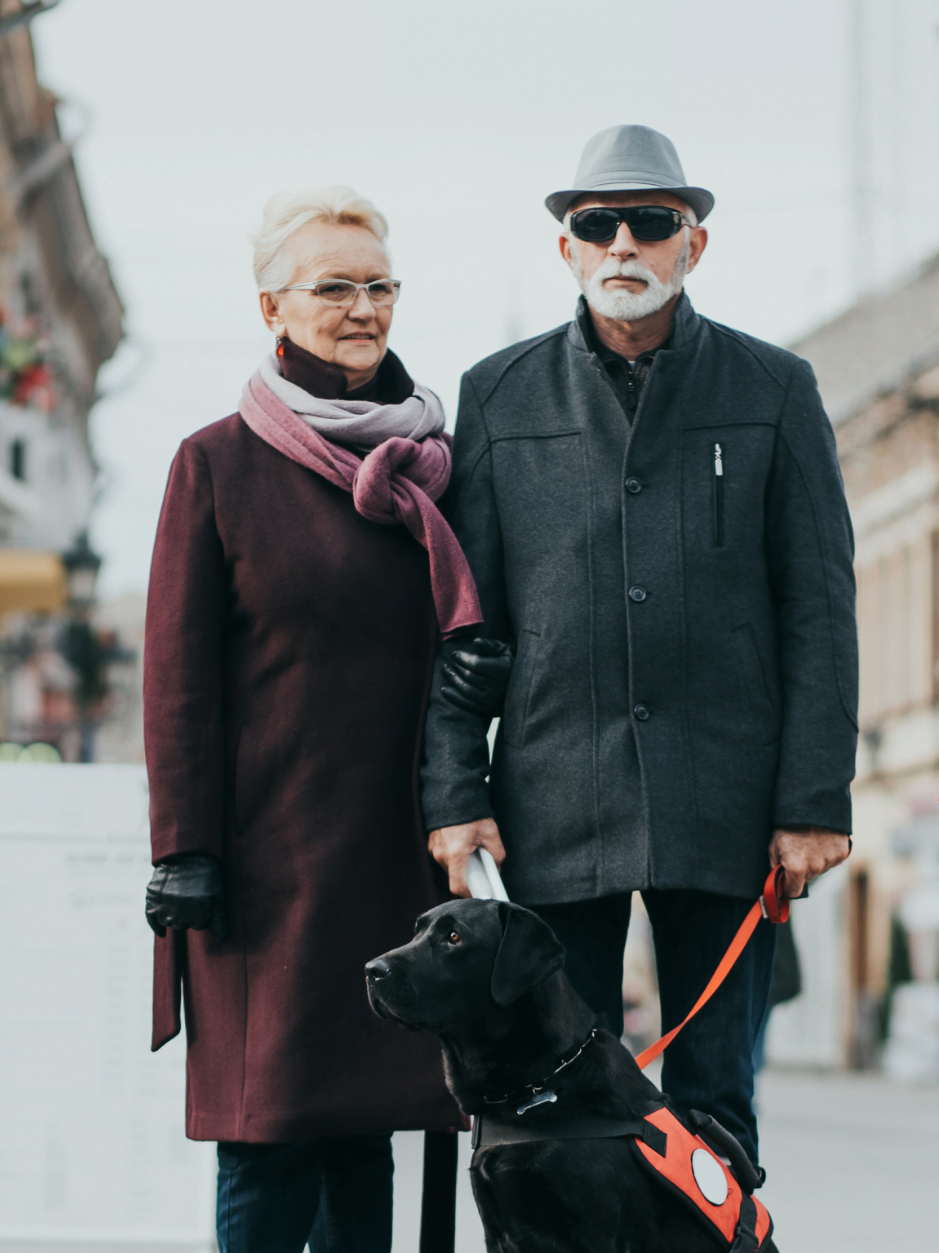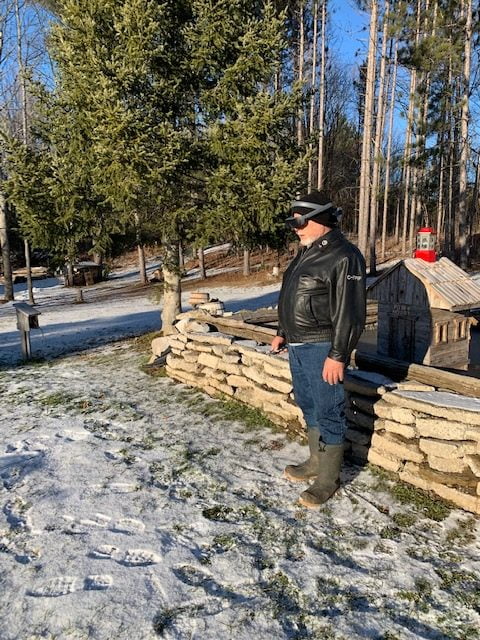When you think about winter and how it affects your eyes, what comes to mind? Are you brought back to memories of cutting winds that leave your eyes streaming with tears? Do you recall times where you had to navigate yourself fully squinting because the light reflecting off of the snow in your surroundings made it difficult to see? Whether you love the season or not, it’s hard to deny that the extreme weather it brings has an impact on our eyes – especially, for those who are legally blind or who have low vision.

Depending on where you live, winter can be an extremely cold season. While many of us make sure to bundle up to keep our bodies warm, we often forget or are unaware of the impacts that winter can have on our eyes and the health and safety challenges it brings.
As temperatures become colder, there are many things we can do to protect our vision during the winter months.
Tips to Keep Your Eyes Safe
Cold weather effects on eyes include several symptoms:
Dryness

The lack of humidity in outdoor and indoor air can cause dry eyes or irritated eyes.
- Tip: Stay hydrated, supplement with omega-3s, and use a humidifier in your home to prevent dry eyes in winter. Omega-3s can ease dry eye symptoms as they appear to improve the function of your eye’s gland responsible for producing the oily part of tears. Humidifiers improve the moisture in the air that is lost from furnaces, allowing your eyes to retain their moisture and prevent dryness.
Excess tearing
“Why do my eyes water in winter?” is a question many of us have wondered. Cold winds or even seasonal allergies can cause our eyes to water more during the winter. Surprisingly, as our eyes experience dryness, our tear ducts can end up producing too many tears to compensate and relieve symptoms like irritation.
- Tip: Wear sunglasses or goggles outside to protect from wind and light (especially while engaging in winter sports or leisurely activities). If you experience excess tearing indoors, you may choose to contact your doctor to see if an allergy medication or eye drop prescription would benefit you. If nothing seems to work, you should make an appointment with your optometrist to determine the cause.
Light sensitivity
Some people experience a form of light sensitivity called snow blindness, a painful eye condition caused by overexposure to ultraviolet (UV) light resulting from your cornea being sunburned.

- Tip: Always remember to wear sunglasses with UV protection on bright days.
Sunburn
You may think sunburns only occur on the skin, but your eyes can get sunburned too. Oftentimes, people will get a sunburn and experience snow blindness at the same time. This can make them more sensitive to light and also cause their eyes to become painful and itchy.
- Tip: Wear physical eye protection along with an SPF moisturizer under your eyes. If you already have symptoms, make arrangements to see your eye doctor. Treatment may be needed to reduce symptoms and help prevent future problems that could arise, such as macular degeneration.
Vision changes
Vision changes can occur in winter because extremely cold temperatures can cause the blood vessels in our eyes to constrict. The result can be increased blurriness or even double vision.
- Tip: Allow your eyes to return to normal temperature and restore their moisture by going to a warmer location.
How to Protect Against Slips and Falls
In addition to protecting our eyes during the cold months, people living with visual impairments can also be at greater risk for falling during the winter.
Here are some easy ways individuals with low vision can keep safe:

- Wear winter boots with extra traction to prevent your feet from slipping on ice or snow.
- Be visible when walking outside – wear brightly coloured or reflective clothing if walking at night so others can avoid bumping into you.
- Ensure your driveway and walkways are cleared of ice and snow to remove any danger zones or blockages and create a safe space to navigate. Either ask a friend or family member to help with this task.
- Consider using a clinically validated assistive technology like eSight to enhance your vision when outside.
